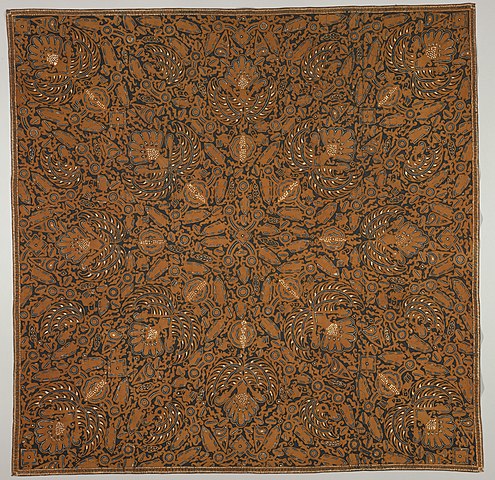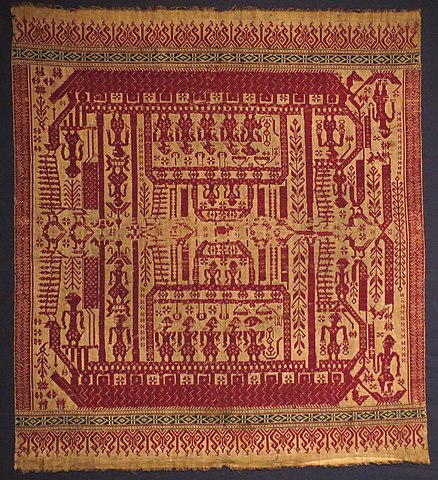
Thammasat University students interested in ASEAN studies, Indonesia, political science, sociology, and related subjects may find it useful to participate in a free 1 February Zoom webinar on Understanding Indonesia’s 2024 Presidential Election: Watershed Moment or Anti-Climax?
The event, on Thursday, 1 February at 9am Bangkok time, is presented by the ISEAS – Yusof Ishak Institute, Singapore.
The TU Library collection includes several books about different aspects of politics in Indonesia.
Students are invited to register at this link:
https://us06web.zoom.us/webinar/register/6617055559716/WN_kiceZ9gCRvSVuFtrN9JVkQ#/registration
The event webpage explains:
About the Seminar
Since the resignation of President Abdurahman Wahid in 2002, Indonesia’s electoral politics has effectively operated as a “semi-cartel” of political parties that have entered parliament, with some of the parties being vehicles for the political ambitions of individual figures, but basically homogeneous in political and economic outlook. The politics of personal rivalry has facilitated the politics of dynasty building, which led to the characterization of national politics as a theatre of rhetorical polarization among the political elite.
However, dynasty building leading up to the 2024 election is being perceived by some important segments of Indonesia’s political class as violating the rules of the game. While the political contestation between the three presidential candidates – Baswedan, Subianto and Pranowo – is still contained within an acceptable status quo, new cleavages are beginning to emerge.
The role of Islamists has been less significant in the run up to the 2024 presidential election. Their political power has been weakening because, first, they have been the target of state repression, and second, the shift of political alliance among nationalist and religious elites results in the Islamists losing access to political mobilization resources.
This seminar will discuss whether the current situation will be a watershed in Indonesian politics giving rise to real differentiation among political actors or whether the shared fundamental policy framework will facilitate a collapse back into the politics of unanimity of the last 20 years.
About the Speakers
Dr. Max Lane is Visiting Senior Fellow at ISEAS – Yusof Ishak Institute, Singapore.
Dr. A’an Suryana is Visiting Fellow at ISEAS – Yusof Ishak Institute, Singapore.
This year Dr. Lane posted on the ISEAS website a report, The Twin Axis in Indonesian Politics: Elite Personal Ambition and the Alienation of Civil Society:
EXECUTIVE SUMMARY
Two axis of tension were revealed in 2023 during the lead into the Presidential election campaign. The first relates to the political dynamics of personal ambition reaching a peak; the second relates to a dilemma faced by civil society in its relation to the political establishment.
A 20-year process of consolidation of a homogeneous political outlook among the parties controlling the Indonesian electoral scene has facilitated a political life that is dominated by personal rivalry and ambitions, and which has opened the way for dynasty building.
The moves by President Joko Widodo, following his 2019 rapprochement with rival Prabowo Subianto, has provoked resistance from sections of his supporters, which may in turn provoke new differentiations within Indonesian politics.
To date, the most obvious beneficiary in the Presidential race from these developments has been Anies Baswedan.
Meanwhile, the quandary for civil society – whether to build towards an outright opposition to the whole political elite or to try to intervene within it – is reflected in the slowness of the Workers Party (PB) to announce a clear position on who, if any, of the Presidential candidates, it will support.
INTRODUCTION
The election campaign for the February 2024 elections is well under way. Most attention at the moment is focused on the Presidential elections, overshadowing the equally important elections for the national and local parliaments. The Presidential elections have been attracting the most attention over the last 20 years. After all, considerable executive power is vested in that position, even if majority support in the parliament for government legislation and policy is also crucial.
This time, however, even more attention is focussed on the Presidential elections because of the emergence of the issue of political-dynasty building caused by the manoeuvres of incumbent President Joko Widodo to secure the Vice-Presidential candidacy alongside Prabowo Subianto for his son Gibran Rakabuming Raka, and Chairpersonship of the Indonesian Solidarity Party (PSI) for his other son, Kaesang Pangarep. These manoeuvres, which are being perceived as utilising state institutions such as the Constitutional Court, the National Police and the Elections Commission (KPU), have provoked accusations of Widodo returning to the method of the New Order and especially to political nepotism.
The emergence of this political dynasty phenomenon is the culmination of a dynamic that has been working its way through mainstream politics for two decades. Between 1998 and 2002, there was a brief political scuffle over the political character of Indonesian political life following the forced resignation of President Suharto. First, President B.J. Habibie and then President Abdurrahman Wahid introduced or discussed a number of reforms that have significantly liberalised political life. These reforms included the recognition of trade union rights and decentralisation. President Wahid also raised the possibility of ending the ban on “spreading Marxism-Leninism”, arguing for a system of the “free market of ideas”. While trade union rights and decentralisation were accepted by the majority of the political elite, Wahid’s reforms were not and the majority of the parties in parliament moved to remove him.
Since that time, all of electoral politics has been in the hands of that parliamentary majority, even as its precise composition evolved. As this parliamentary majority consolidated, so did a shared perspective on economic, social and political developments. This perspective is characterised by satisfaction with the current political status quo and the state-assisted and corruption-lubricated support for the existing private sector, dominated by national and local oligarchies. For almost 20 years, parliament exhibited no major divisions, controversies or polarising debates, not even those that had provoked controversy in society.
With the consolidation of this homogeneity of outlook, the dynamic among the parties became increasingly dominated by personal rivalries and ambitions. Indeed, the first wave of evolutions in the political party world directly reflected this. Figures such as Prabowo Subianto and Susilo Bambang Yudhoyono left their Golkar or New Order military original habitat to establish parties as their personal vehicles. PDIP immediately after 1998 was the vehicle for Megawati Sukarnoputri. Later, the PDIP was used to promote Megawati’s daughter, Puan Maharani, as a political figure. The split in the PKB, ousting Wahid, was to make the PKB the vehicle for Muhaimin.
It was into this dynamic that Joko Widodo inserted himself back in 2005. It was a political arena where ideology and programme were insignificant and personal image-making was everything. Widodo was able to take advantage of a major weakness in the PDIP’s situation in relation to the dominant politics of personal ambition. Megawati’s Presidency was not a great success and when she stood against one of her own Ministers, who even had to establish a new party to compete against her, she lost. After Megawati lost against Susilo Bambang Yudhoyono, she tried again in 2009 with former general Prabowo Subianto as her VP running mate and lost again, gaining only 27% against Yudhoyono. Ever since her first defeat in 2005, the PDIP, although very much dominated by Megawati, no longer had a credible Presidential candidate.

(All images courtesy of Wikimedia Commons)

